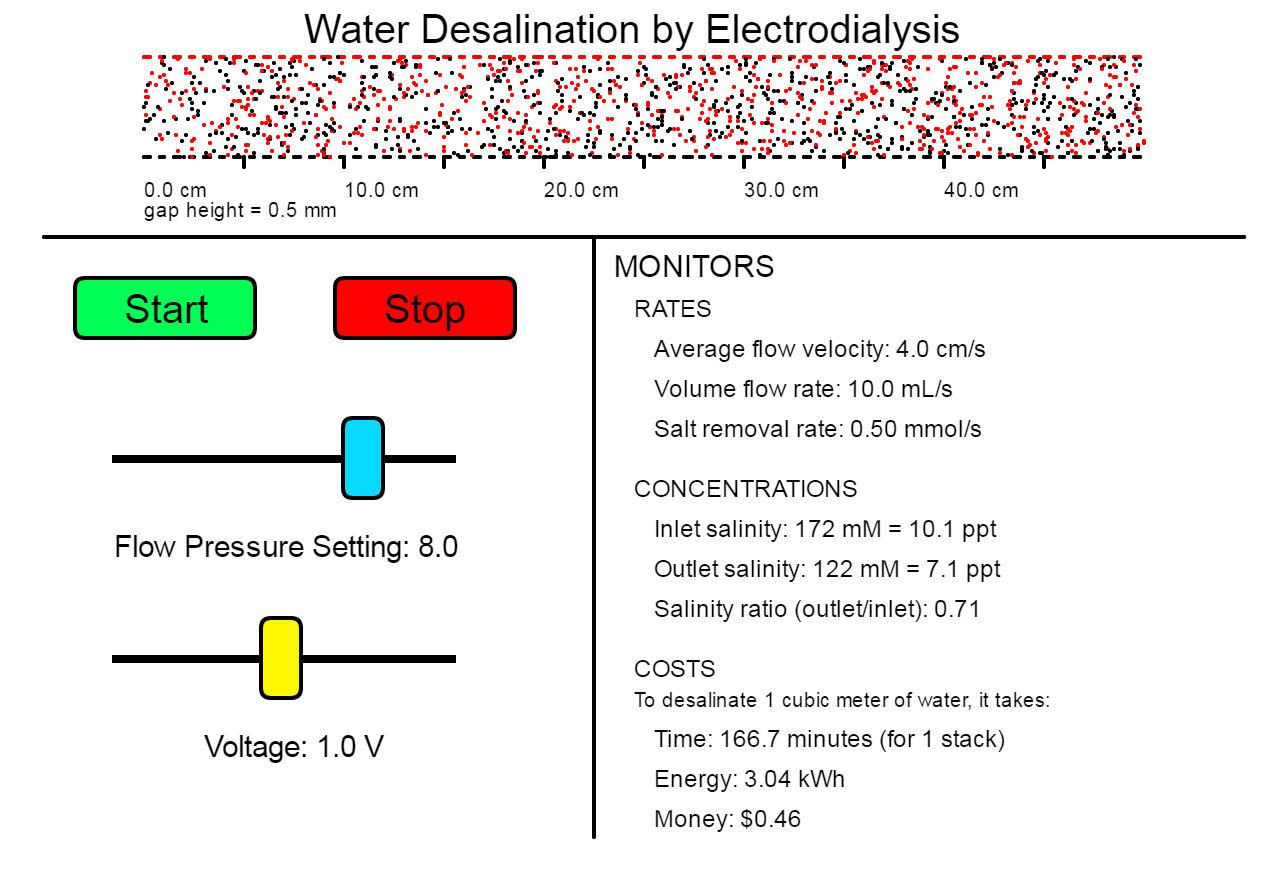About This Site
Motivation
We would like to bring to the general public (and in particular, high school students) knowledge of how electric fields can be used to desalinate water. To this end, we have developed an interactive visual program that demonstrates how ions in water respond to an external field.
Users of this simulation are invited to come up with designs of efficient desalination systems. They can adjust the flow rate, electric field strength, and dimensions of the system and observe the influence of these parameters on the motion of ions as well as on various output quantities such as salt concentrations and energy utilization.
Our goal is to help spread awareness of the scarcity of fresh water, and to offer a glimpse of the engineering science behind water cleaning processes.
Contributors
Stanford Outreach Programs
- Kevin Ko, RISE Summer Intern
- University of California, Berkeley
- I-Heng McComb, Summer Research Program for Teachers/IISME Fellow
- Fremont Union High School District
- Dr. Ali Mani
- Dr. Clara Druzgalski
- Dr. Elif Karatay
- Karen Wang
- Dr. Clara Druzgalski
Stanford Flow Physics and Computational Engineering: Mani Group
Acknowledgement
The material presented in this website is based upon work supported by the National Science Foundation under Grant Number 1553275. Any opinions, findings, and conclusions or recommendations expressed in this material are those of the contributors and do not necessarily reflect the views of the National Science Foundation.
Simulation Applet

What Can I Do With This Simulation?
BASIC CHALLENGE
In this challenge, you will design a desalination process using the simulation. You will need to decide the dimensions of your cells and cell stack, the flow pressure level, and the amount of voltage to apply.
Your Mission: Design a process to desalinate brackish water with salinity 7 ppt into drinkable water (no more than 1 ppt) for as little cost per volume as you can.
Think you got it? Try Additional Challenges....